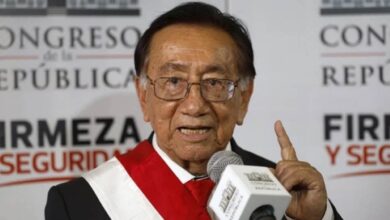Russian elections: Boycott and surveillance
While Vladimir Putin seeks his fourth term as president of Russia, his main opponent Alexei Navalny calls supporters to boycott the presidential election in March 2018 after being rejected by the country's Electoral Commission due to an alleged case of corruption.
"We are announcing a vote strike; we are going to ask everybody to boycott these elections, we will not recognize the results", stated Navanly after hearing the unanimous decision of Russia’s election committee to ban him from public office after being incriminated of previous conviction for fraud.
Navalny, former Finance Minister and main Russian opposition leader, has described the rejection of his presidential candidacy as a conspiracy against him and denounces the act through online videos.
“What they are offering us can’t be called elections. Only Putin and the candidates he has personally selected, those who don’t represent even the smallest threat to him, are taking part. To go to the polling station now is to vote for lies and corruption”, declared Navanly.
For Nalvany, “Vladimir Putin is extremely shaken up” and afraid of competing with him, which is the main government’s opponent and supported by the young community. In return, the European Union said in a statement that keeping Navalny out of elections will “casts a serious doubt on political pluralism in Russia and the prospect of democratic elections next year”. The Central Elections Commission responded indicating that it is not the first time this type of vetoes are made in the country and, in addition to the sentence that disqualifies the opponent, an illegal campaign fundraising is being carried out.
Putin asks to monitor social networks during elections
Parallel to Navalny´s ban, President Vladimir Putin urged authorities to follow the activity in social networks of some Russian companies during election day in order to evaluate their involvement in national politics.
"We have to carefully review the way in which some companies operate in social networks and how involved they are in our national political life", said Putin, adding that the measure is taken with the sole intention of analyzing the behavior of corporations, but should not reduce freedom of speech on the Internet.
Although no details were disclosed about the companies that would be monitored, it should be remembered that at this moment Russia faces accusations from the United States and other Western countries, for supposedly interfering with propaganda during the North American country elections.
Latin American Post | Krishna Jaramillo
Copy edited by Susana Cicchetto





